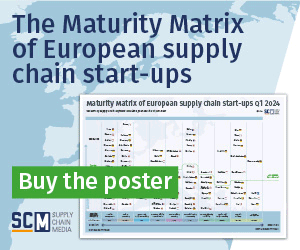Growing concerns about impact of Brexit on supply chains

Logistics service providers and customs agents are being inundated with questions about Brexit. In the run-up to a webinar about Brexit, for example, Belgian logistics service provider H. Essers received no less than 600 questions on the topic. Many shippers are realizing that they don’t know whether they or their trading partners are responsible for the import declaration in the United Kingdom, for instance. And what about Northern Ireland?
By Marcel te Lindert
Negotiators from Brussels and London have been working overtime in their attempts to strike a last-minute trade deal between the European Union and the UK. Joffrey Decock, Senior Manager Global Trade at Ernst & Young who was invited to share his vision on Brexit during the H. Essers webinar, believes their chances are slim.
“We think it’s 55% likely that the new year will start without a trade agreement. It’s almost out of the question that a comprehensive, all-encompassing trade agreement will be reached, but we still have high hopes for a simplified agreement containing some basic agreements. We estimate that chance at 45%,” said Decock. He added that the negotiators will have to hurry: “A trade agreement must be in place within a few days. Any longer than that will make it very difficult to get the agreement ratified by the UK Parliament, the European Parliament and the parliaments of all the individual EU Member States.”
Stockpiling
Many companies have adopted a wait-and-see attitude over the past year, perhaps in the hope that the Brexit uncertainty would disappear as the end of the transition period drew nearer. But that does not seem to be the case, and the sense of panic is building as a result.
Dutch news website Nu.nl reported that many UK companies have started stockpiling in an attempt to avoid problems if a customs declaration has to be submitted for every shipment across the Channel as of 1 January 2021. By building up extra stock they hope to prevent disruption to supplies. As a result of this, and also because transport capacity is becoming increasingly limited, transport costs have already risen by 20% in recent weeks and are expected to rise even further.
Northern Ireland
The one-hour webinar was nowhere near long enough to answer all 600 questions received by H. Essers’ customs specialists. Clearly, there is a lot of ambiguity. What will happen at the Republic of Ireland/Northern Ireland border, for example? “In order to prevent a land-based border between the European Customs Union and the UK on the island of Ireland, Northern Ireland will be treated like an EU country for the time being. This means that no import declaration is required,” explained Decock.
However, that does not necessarily mean that shipments to Northern Ireland won’t involve extra paperwork. “That depends on the chosen transport route. Any trucks going to Northern Ireland via the United Kingdom will need a transit document. That involves extra handling and also costs money. That’s why we advise taking the ferry directly from the European mainland to the island of Ireland – especially in the beginning, to avoid the anticipated congestion at the British borders,” said Christopher Van Den Daele, Business Unit Manager FTL Secured at H. Essers.
Transit times
Anyone who needs to enter or pass through the UK carrying goods must expect longer transit times, with delays of up to a few days. “Shipments to or from the UK have an impact on the entire supply chain. Every link will be affected, so there are a lot of things that could go wrong – not only for companies, but also for customs authorities. This could cause border delays lasting hours or even days, and hence late deliveries,” stated Johan Ghijsselinck, Business Unit Manager Chemical Cargo at H. Essers.
In addition to full truck load (FTL) shipments, the Belgian logistics service provider also handles less than truck load (LTL) shipments to the UK. “In that case, multiple consignments are consolidated into a single shipment. That increases the risks, because even a small consignment with incomplete paperwork may be enough to hold up the entire truck at the border. That’s why it is important that every link in the chain knows what to do – and double-checks that everything is in order before the transport gets underway.”
Incoterms
One important recommendation to all companies is to reach clear agreements with trading partners about the incoterms which, among other things, dictate who is responsible for the import declaration in the UK. “Many companies are unsure about the situation with their customers in the UK,” said Decock. “That’s not surprising, of course, because things like incoterms haven’t been that important until now. You could just load your goods into a truck and drive to England. But that will no longer be possible as of 1 January 2021. Even if the negotiators from London and Brussels agree on a deal in the next few days, there will still be border formalities to deal with.”









